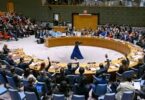In a staff level meeting with the International Monetary Fund (IMF) a bailout package of $6 billion has been finalised and global lending agency will give approval to it in Board of Directors meeting. Like the previous loan programmes which were availed by almost successive governments since 70s certain conditions and strings have been tied to it. This time the sitting government will be required to implement the conditions of doing away with power sector subsidies; electricity and gas tariffs rise and power sector recoveries of receivables; expanding tax base by netting non-filers; terminating tax exemptions; effectively addressing the macroeconomic imbalances of unsustainable public debt and swollen trade deficit; gradually reducing budget deficit; and improving the Ease of Doing Business Index to stimulate domestic and foreign investment to stop the current trend of slow down of the economy.
The track record of the elected ruling elite has not been enviable regarding the implementation of IMF structural reforms which would have impacted the rich feudal and mercantile classes. That is why independent economists like Dr. Ashfaq Ahmad khan were insisting for homegrown solution for which the political leadership and tax bureaucracy is still not inclined. The regressive fiscal measures like electricity and gas tariffs hikes have always been proved counterproductive as these measures have vitiated the economic environment. The economies of South Asian developing countries thrived and reached the zenith of prosperity with reasonably low tariffs of energy inputs, tax reforms and curbing the culture of corruption. This recipe of achieving success on the economic front was briefly touched by Malaysian Prime Minister Dr. Mahatir Mohammad in a speech in his visit of Pakistan. But neither the political elite nor the top bureaucracy seem interested to initiate and implement these reforms.
Power sector subsidies will be withdrawn and more doses of electricity and gas tariffs hikes will follow. The government has not shown the determination to go after the influential electricity bills defaulters and exercise the option of persuading the private power producers to reduce the power tariff to which they had agreed in President Musharraf government. Power sector crises will not go away, and particularly the hydra-headed monster of circular debt, unless legal solutions are found to address the issues connected with the payment on account of idle capacity of thermal power plants and NEPRA manipulative practice of allowing highly inflated electricity tariff to IPPs which is indexed with depreciating rupee and appreciating US dollar. As per IMF condition if absolute autonomy is granted to NEPRA and OGRA then these regulatory authorities will become “Bull in a China House.”
The new professionally competent Chairman FBR is keen to expand the tax base by documentation of the economy while taking the business community in confidence. Documentation of wholesale and retail trade is not an easy task as the traders sells a number of smuggled goods along with the locally produced ones. The traders do not give receipts of soled smuggled goods. That is why a scheme of self assessment of income tax was introduced in 2001 because it eliminated the element coercion by tax collectors. It is high time to impose and collect agriculture income tax as its exemption has provided conduit for tax evasion to the feudal class on their income from industrial and business enterprises. Tax Ombudsman report of last year about the exemption of agriculture income tax had elucidated the matter.
For reducing the current account deficit imports have been curtailed with the imposition of regulatory duties and the trade deficit on merchandise account has declined by 13 percent. But it is an adhoc solution to tackle this chronic macroeconomic issue. Slapping of unnecessary regulatory and countervailing duties on imports always give impetus to smuggling of foreign goods. The way out lies in increasing exports with technology improvement, value addition and export products innovations. Simultaneously, incentives have to be given to promote industries of manufacturing imports substitutes, industrial raw material and intermediate goods. The imported raw material and intermediate goods have become very expensive due currency depreciation by 34 percent. None of the previous elected governments had implemented the rich people taxing structural reforms which were emphasized in the IMF programme. Let us hope PTI government will have the spine to touch the holy cows of feudal and mercantile classes.






